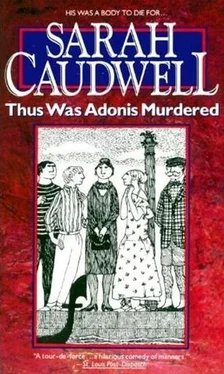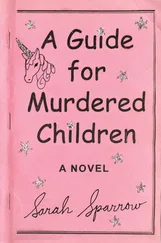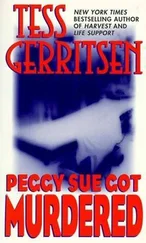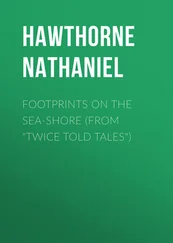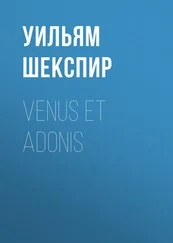I began to be very worried about Desdemona. We are given to understand that Othello’s courtship of her consisted almost entirely of stories beginning “When I was stationed among the Anthropophagi—” or “I must tell you about a funny thing that happened during the siege of Rhodes.” The dramatist Shakespeare would have us believe that she not only put up with this but actually enjoyed it: can that great connoisseur of the human heart really have thought this possible?
“And what do you do now, Bob?” I asked, several eternities later, hoping for a change of subject.
He told me that on leaving the Army he had found himself with a few bits and pieces which he had picked up as souvenirs here and there on his travels. Thinking that these objects might be of interest to the public, he had been inspired to invest his gratuity in the purchase of a junk shop in Fulham. (He used the expression “junk shop” as if referring modestly to a rather superior antique-dealing establishment: I suspect that it is, in fact, a junk shop.) Some of his friends had also found themselves with bits and pieces similarly picked up here and there in the course of their military careers: these had been added to his stock in trade. The bits and pieces proving more valuable than expected, the business had prospered. I would think it, he said, a funny job for an old soldier, but it suited him. He now reverted to reminiscence, telling me of various pranks and japes by which the bits and pieces had been acquired.
“I suppose we ought to ask old Eleanor Frostfield to join us for coffee,” said the Major, as the meal drew at last to its close. “Bit of a bore running into the old girl, but I’d better do the dutiful.”
Eleanor Frostfield proved to be the armour-plated matron. I had noticed no sign of any acquaintance between her and the Major; but they know each other, it seems, in the way of business, Eleanor being the owner, by inheritance from a deceased husband, of a firm of art and antique dealers.
I fell in very cordially with his suggestion, for it seemed to me that any invitation to Eleanor must in all courtesy be extended to the two young men at the same table. In the end, since it hardly seemed kind to exclude the remaining pair of Art Lovers, all seven of us adjourned to the terrace together. In the course of arranging this, it was discovered that the beautiful young man was Ned; that his broad-shouldered friend was Kenneth; that Eleanor was Mrs. Frostfield; that the pretty blonde girl was Marylou Bredon; that the young man with her was her husband Stanford; that the Major was Bob to his friends; and that I was Julia Larwood. I already knew, of course, that I was Julia Larwood, and the others, I dare say, also knew who they were; but there is presumably some sense in which the sum of human knowledge was increased.
The Major, once our coffee had arrived, tried to go on telling me about a merry prank by which he had become the owner of a twelfth-century Greek icon, formerly the property of a monastery near Paphos. Fortunately, he was interrupted by Kenneth, who told him, in a Scots accent heavy with disapproval, that he shouldn’t have done it; and went on to deplore the damage done to the artistic inheritance of Cyprus by a succession of occupying armies. This did not silence the Major for long; but it diverted his attention. Kenneth became the audience for a series of further anecdotes, illustrating the hardships of military life not known to young men of Kenneth’s generation.
Eleanor and Marylou were sitting next to each other. I settled myself on a footstool at their feet, and thought that I should try to eradicate the unfortunate impression I had earlier made on Eleanor. I remembered that I had seen the name of her firm quite recently, on a capital transfer tax valuation obtained by clients of mine. This gave me some straw for the bricks of flattery.
“I shall not venture,” I said, “to open my mouth in Mrs. Frostfield’s presence on any subject connected with the arts. I expect you know, Marylou, that Mrs. Frostfield is a director of one of our leading firms of experts in antiques and the fine arts.”
It worked like a charm. Insofar as a woman so closely resembling the late Queen Boadicea can be said to simper, Eleanor simpered. “Really,” she said, “Miss Larwood exaggerates. We’re not Christie’s or Sotheby’s, you know.” But she made being Christie’s or Sotheby’s sound rather over-flamboyant.
She melted to such an extent as to ask my own profession. I answered that I was in practice at the Revenue Bar; but the name of her firm was naturally familiar to me, since clients of mine with important collections to be valued for tax purposes so frequently had recourse to the expertise of Frostfield’s. There is no bond like that of mutual clients: we were thereafter as Ruth and Naomi. Well yes, Selena, I do exaggerate — but at least we were “Julia” and “Eleanor.”
I remarked on the coincidence of her being acquainted with the Major. It seems, however, that it is not really surprising. The travel agency which arranged our package has close connections in the world of art and antiques and long experience of making business travel arrangements for those concerned with it.
“Business travel?” I asked. “You are not simply on holiday, then?”
“My dear Julia,” said Eleanor, with a certain coyness, “for accounting purposes, of course, it has to be business travel. You will be the first to appreciate that with our penal system of taxation—”
“Do you mean,” asked the enchanting Ned, taking part in the conversation for the first time, “that you put your holidays down as a business expense for tax purposes?”
“My dear boy, of course,” said Eleanor benignly. “Everyone does.” It was not for me to strike a discordant note by suggesting that such a practice fell on the wrong side of the delicate line between legitimate avoidance and illegal evasion.
It is ironic to reflect that I congratulated myself, as I sat there on the footstool, on the pleasantness of my situation. The soft night air was warm against my cheek; the stars were shining in a velvet sky; the canal was lapping gently against its banks; the Major was telling someone else about the troopship. What more could a woman ask for, to be perfectly contented?
Except, of course, the favours of the lovely Ned. The time had come, I felt, to show an interest in his hopes, dreams and aspirations.
“And you, Ned,” I asked, “are you professionally involved in the fine arts?” I prepared to give sympathetic encouragement to a boyish ambition to discover a lost Giorgione or something like that.
“No,” said the lovely creature. “No, actually, I’m a lawyer, like you.” Less romantic, but easier — one could spend many happy hours discussing recent decisions of the Court of Appeal. “That is to say, I took my degree in law. I am not in private practice.”
“Ah,” I said, “you have gone into industry.”
“No,” he said, looking at me demurely under his beautiful eyelashes. “No, not precisely. I am employed by the Department of Inland Revenue.”
My pen as I write these dreadful words falls trembling from my petrified fingers. I am left with hardly the strength to sign myself
Yours, as always, Julia.
Few of my readers, I imagine, subscribe regularly to the Scuttle: it is not a journal designed for the cultivated taste. Some, however, may on rare occasions have been moved to seek further details of the supermarket corruption scandal or the political vice link probe promised by its towering headlines. They will then have discovered that housewives in East Dagenham have been offered more trading stamps with a purchase of McCavity’s strawberry preserve than with the equally wholesome and delicious confection produced by the factories of McGonegal: that, by the stringent ethical standards of the Scuttle, is a corruption scandal. They will have read that a back-bench Member of Parliament has had dinner in the company of a girl employed two doors away from a Soho nightclub: that is the political vice link. Such readers will sympathize with my own feelings on hearing that the monster of depravity prefigured in Julia’s letter was, after all, nothing worse than a poor, harmless, necessary Civil Servant. “Well, really,” I said.
Читать дальше
